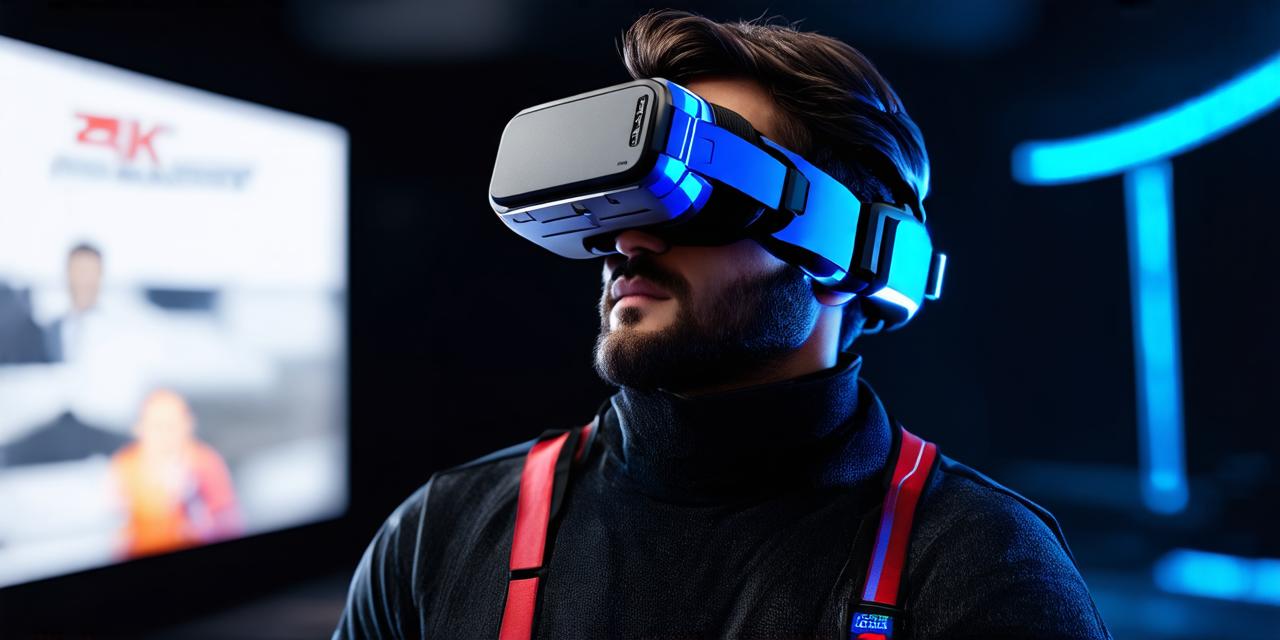In recent years, virtual reality (VR) has become increasingly popular in various industries, including healthcare, entertainment, and education.
Effectiveness of Virtual Reality Training
Virtual reality training has been shown to be highly effective in enhancing learning outcomes. The immersive nature of VR technology allows individuals to engage with their environment in a more natural way, leading to better retention and understanding of information.
Research has also shown that VR training can improve confidence, motivation, and overall performance in various tasks.
One example of the effectiveness of VR training is in the field of healthcare. Medical professionals have used VR simulations to practice surgeries, diagnose diseases, and develop treatment plans. This has led to improved patient outcomes and reduced risk of complications during actual procedures.
Cost-Effectiveness of Virtual Reality Training

Virtual reality training can be a cost-effective solution for organizations looking to train their employees. By using VR simulations, organizations can reduce the need for expensive equipment, facilities, and materials that would be required for real-life scenarios.
Additionally, VR training eliminates the need for travel expenses, allowing employees to complete their training in a virtual environment without leaving their workplace.
Furthermore, VR training can be reused multiple times, allowing organizations to maximize their investment in the technology. This can lead to significant cost savings over traditional training methods that require new materials and equipment every time they are used.
Safety of Virtual Reality Training
Virtual reality training provides a safe environment for individuals to practice skills and techniques without the risk of harm or injury. In real-life scenarios, there is always the potential for accidents and injuries, which can be costly and disruptive to an organization’s operations.
However, with VR training, individuals can practice in a controlled environment that simulates real-life situations without any physical consequences.
For example, pilots can use VR simulations to practice flying techniques without risking the lives of passengers or other aircraft. Similarly, military personnel can use VR simulations to prepare for combat without putting themselves and their fellow soldiers at risk.
Flexibility of Virtual Reality Training
Virtual reality training provides flexibility in terms of when and where training can be completed. With VR technology, individuals can complete their training at their own pace, which allows them to work around other commitments they may have.
Additionally, VR training can be accessed from anywhere with an internet connection, providing remote access that is not possible with traditional training methods.
Limitations of Virtual Reality Training
While virtual reality training provides numerous benefits, there are some limitations to consider. One limitation is the cost of the technology itself.
Another limitation is that VR simulations may not accurately replicate all aspects of real-life situations. While VR technology has advanced significantly in recent years, there are still some limitations to the level of realism it can achieve.
This means that individuals may need additional training or supervision after completing a VR simulation to ensure they are fully prepared for real-life scenarios.
Selecting the Appropriate VR Training Solution
When selecting a virtual reality training solution, organizations should consider their specific needs and requirements. They should also consider the cost of the technology, as well as any limitations that may impact its effectiveness.
Additionally, they should ensure that their employees are comfortable with using VR technology and have adequate training to use it effectively.
In conclusion, virtual reality training provides numerous benefits for individuals and organizations looking to enhance learning outcomes, reduce costs, improve safety, and provide flexibility in terms of when and where training can be completed. While there are limitations to consider, virtual reality technology is a highly effective tool that can be customized to meet the specific needs of any organization or individual.



